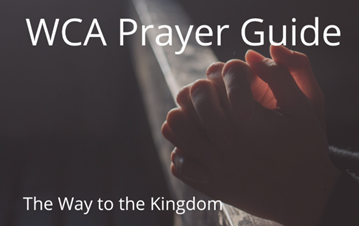
By David Watson
It’s common today to hear people talk about the “secular West.” “Secular,” however, may not be the best term to describe our culture. We in the West tend to be religious people, though less frequently Christian than has been the case in the past. Apart from the major world religions, there are innumerable religious practices that we call “new age,” or sometimes “occult.” From tarot cards to crystals to various forms of “mindfulness,” the religious practices of the West are increasingly both diverse and individualistic. They are customizable, like an iPhone. We can download what we want, when we want, in ways that suit our preferences.
The God of all creation, however, is not a product to be consumed, but a Lord to be worshiped. As a friend of mine likes to say, God has many enemies, but no rivals. The mandate of the church has always been to draw people into the worship of the true and living God who came to us in Jesus Christ and abides with us in the Holy Spirit. Thus, we need to be discerning in our religious practices, and we need to teach others to do the same. First John 4:1 teaches us not to believe every spirit. Rather, we are to “test the spirits to see whether they are from God” (NRSV). Do these spirits confess the incarnate God who came to us in the person of Jesus Christ? If they do not, they are not from God.
In some ways, the world of the postmodern West is like the world of the early gentile Christians. Luke recounts for us that the Athenians whom Paul visited “would spend their time in nothing but telling or hearing something new” (Acts 17:21). Paul recognizes that these people are “extremely religious… in every way.” They seek enlightenment and have perceived truth in limited ways. Yet the fullness of God’s revelation is in and through Jesus Christ–crucified, risen, and ascended. Christ is no longer here in body, but we can know him through the work of the Holy Spirit.
There are many spirits, but there is only one Holy Spirit. He is the Spirit who is sent by Christ (John 20:22). The Holy Spirit empowers the church for the work of evangelism (Acts 1:8). He cultivates within us a love of God and neighbor–even perfect love. He gives us gifts as he chooses for the building up of the church (Rom 12:6-8, 1 Cor 12:4-11). He is our Advocate (John 14:15) and teacher (John 14:26). He is the Spirit of truth (John 14:17).
As Christians, we confess belief in the Holy Spirit, but do we trust him? What do we expect of him? If we did not believe in God, would our expectations for our lives be different? If so, how? God is not just an idea. In important ways, God is like a person, with will and agency. God believes certain things, wants certain things, and does certain things. The question for us as humans is whether our beliefs, desires, and actions are in agreement with His. Are we willing to allow this God to reshape our hearts, transform the way we live, and move with power among our communities of faith? This is spiritual Christianity: to give our whole lives to God and yield to the power and work of the Holy Spirit–and to no other.
A Suggested Pattern of Prayer
As you pray through the following prayer points, invite the presence of the Lord into your time of prayer. Each day’s prompt has a Scripture reference for you to pray through. As you pray allow time to also listen to what the Holy Spirit is saying to you. When you have prayed through the Scripture and prayer point, you may be led to add your own prayers. Pray and consider what action steps might you take in response to the Lord’s leading. Repeat this prayer pattern weekly for the month.
Daily Prayer Points
Sunday: Pray that God will give you discernment about what is from him and what is not. Pray for divine wisdom and divine leading. (1 Cor 2:12)
Monday: Ask God to show you where you have allowed idols in your life. Pray for forgiveness and ask that God will purify your heart. (1 Tim 1:5)
Tuesday: Praise and honor God through your prayer. Recommit your life to him and to the ministry of the good news of Jesus Christ. (Acts 4:29-30)
Wednesday: Give praise and thanksgiving for the presence, power, and work of the Holy Spirit. Ask to be filled anew with the Spirit and to be transformed by his grace. (2 Cor 3:17-18)
Thursday: Pray that your life will be yielded entirely to the work of the Holy Spirit, that you will be made perfect in love in this life. (Rom. 8:5-6)
Friday: Ask God to activate the gifts of the Spirit in your life from Romans 12:6-8 and 1 Corinthians 12:4-11. (1 Cor. 12:7)
Saturday: Ask God to move with power in your church. Pray that God’s work in your community of faith will exceed all expectations. (Eph. 3:20-21)
Beloved, do not believe every spirit, but test the spirits to see whether they are from God; for many false prophets have gone out into the world. (1 John 4:1)
The Rev. Dr. David Watson serves as Academic Dean and Professor of New Testament at United Theological Seminary in Dayton, Ohio. He is also the Lead Editor of Firebrand, an online magazine aimed at enlivening intellectual dialogue in various related traditions, including Methodist, Arminian, Holiness, Pentecostal, and others.
Brought to you by the International Intercessory Prayer Network

